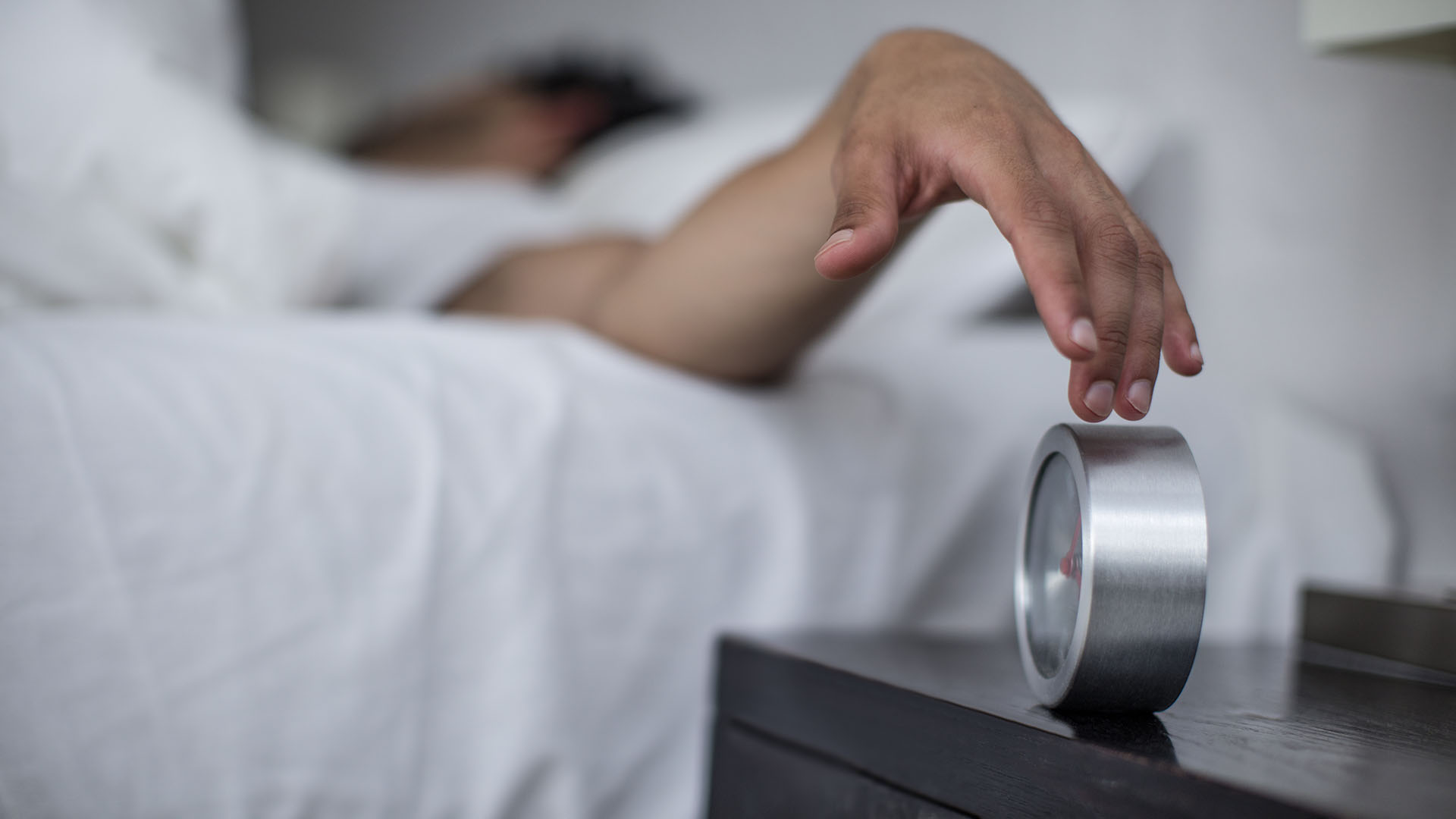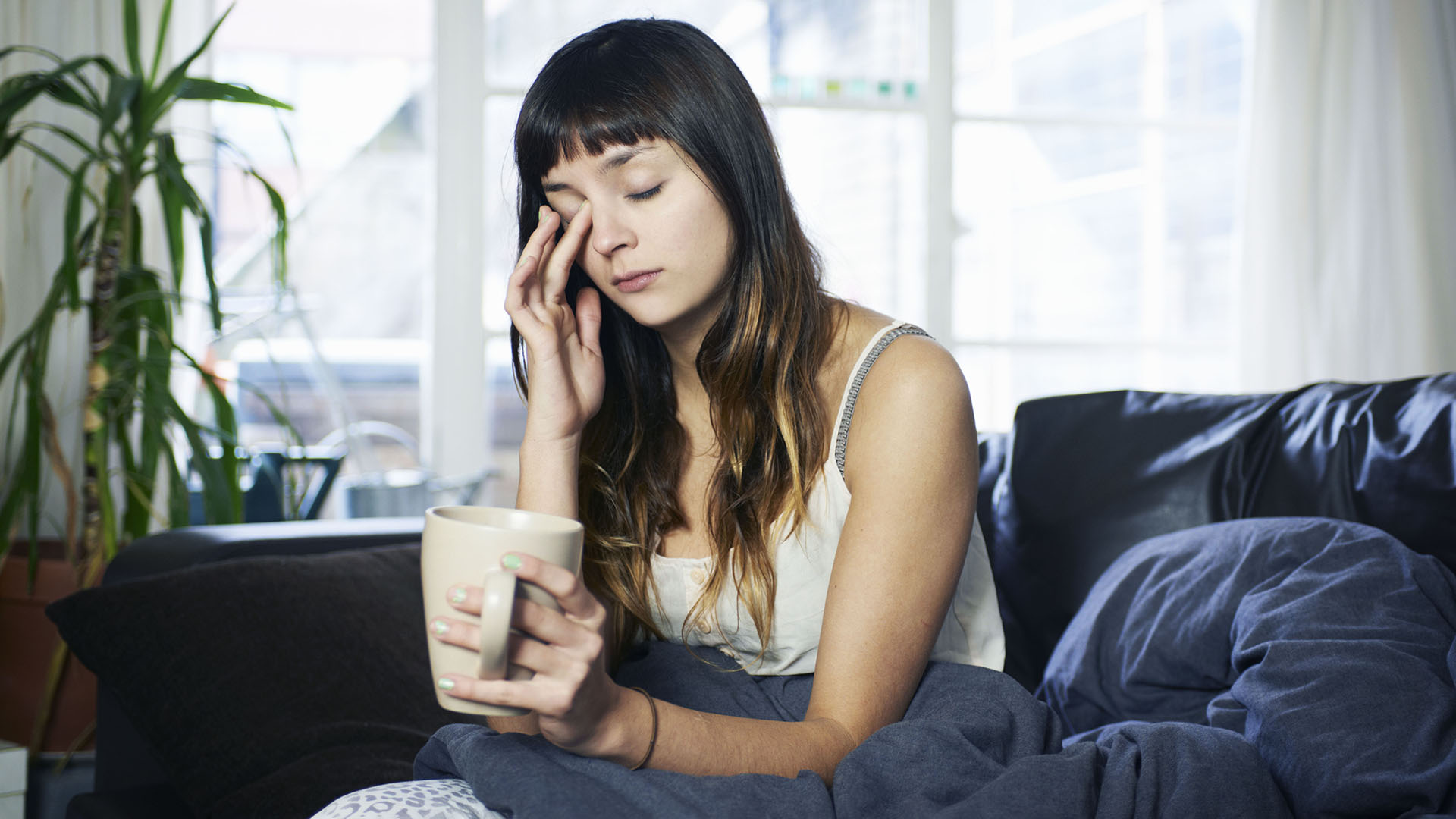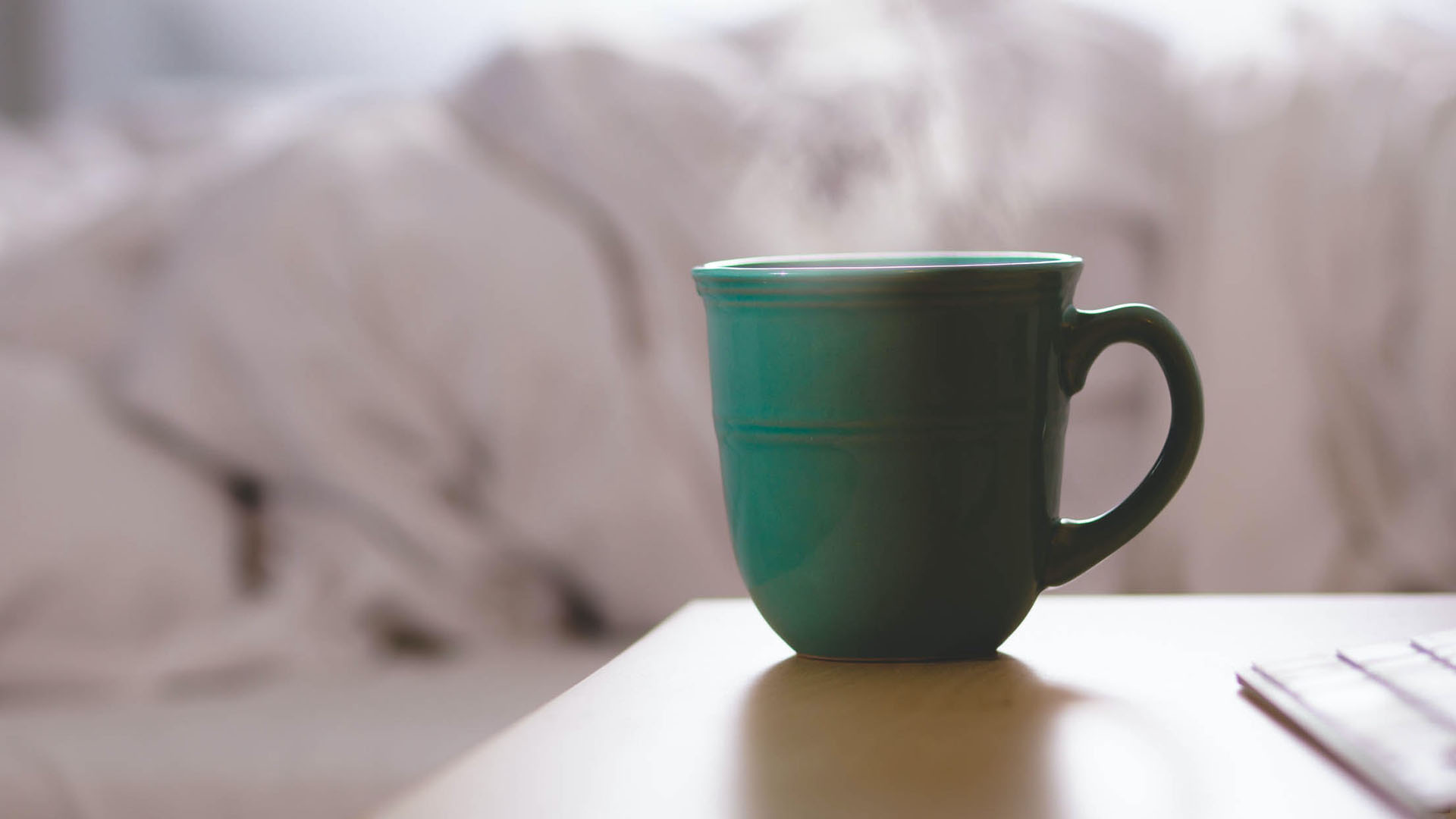Why is waking up in the dark so difficult? And how can I make my body adapt?
Here's how to ease the pain of winter mornings, according to a sleep expert

Sign up for breaking news, reviews, opinion, top tech deals, and more.
You are now subscribed
Your newsletter sign-up was successful
Winter has set in, which means the nights are drawing in and the mornings are depressingly dark too. There are few things more difficult than dragging yourself out of a cosy bed when it's pitch black outside, but unless you're in a position of being able to pivot to a 10am start time during the winter months, it's something most of us have to just deal with.
But why is it so difficult to get up when it's dark outside? Is it just laziness, or is there a biological reason? We spoke to a sleep expert to find out what's going on if we try and wake up when it still looks like nighttime outside, and what we can do to make it easier.
Before we get into it properly – if you're not sleeping well and you think it's your sleep setup that's to blame, check out our best mattress guide and our roundup of mattress sales and deals to ensure you get the lowest price.
Why is waking up in the dark so difficult?
"Hauling yourself out of bed when the sun hasn’t risen yet can be a very tough task. One of the reasons why this is difficult is because of our circadian rhythms. This refers to the physical, mental, and behavioral changes that follow a 24-hour cycle – processes that respond primarily to light and darkness," says Theresa.
It's all to do with our production of melatonin – a hormone that makes you sleepy. Sunlight suppresses the production of melatonin, and darkness has the opposite effect. "When it is totally dark, we lose the strong wake-up cue that sunlight gives us, which leads us to battle biology in order to switch into alertness," she continues.
A lack of vitamin D – the vitamin we get from sunlight – might also have an effect. "Vitamin D intake typically decreases drastically in the winter due to fewer hours of sunlight, which studies have suggested can lead to insufficient sleep," says Theresa.

Is there a way to trick your body out of this response?
One thing that can help is to invest in a sunrise alarm (also known as a wake-up light). These gradually brighten over a set period of time, mimicking the sunrise, so when you wake, it's to a softly lit room that feels a bit like sunlight beaming in.
"These lights can positively affect your circadian rhythm, prompting your body to slow down melatonin production, which allows a boost in your alertness in the morning," explains Theresa. "A previous study showed that using sunrise alarm clocks to lighten up your room 30 minutes before your wake-up time may reduce grogginess upon awakening."
To counter the lack of vitamin D, it might also help to take a vitamin D supplement, or eat foods that are high in vitamin D – for example, salmon, eggs or enriched mushrooms.
Is it better to just adjust my wake-up time?
No. While it might be tempting to spend an extra 30 minutes in bed on a particularly cold, dark morning, messing with your sleep schedule is the worst thing you can do. Instead of getting more sleep in winter, it's better to invest in high quality, consistent sleep.
Sign up for breaking news, reviews, opinion, top tech deals, and more.
"Being able to keep consistent bed and wake-up times enables your body to 'learn' this pattern, helping it to produce the right hormones to encourage sleeping and waking," says Theresa. "Despite how dark it may be outside, a regular sleep schedule will always make it easier to wake up." There's more bad news too: ideally you'll maintain the same waking-sleeping hours over the weekend, to avoid any disruption to the pattern.

What should I do first thing?
Theresa suggests kick-starting your day with a glass of water. "Drinking a glass of cold water as soon as you wake up refreshes and rehydrates your body, speeds up your metabolism and increases alertness," she says. "Drinking more water can be a very handy technique for waking up in the morning, especially during darkness."
Resist the urge, too, to lie in bed for a bit. "This may sound simple, but the more time you spend in bed after waking up, the longer it will take you to feel alert," explains Theresa. "It is very important to get moving by getting out of bed straight away and doing activities to increase your alertness. Physical activity has the power to regulate the hormones linked to your circadian rhythm and ignite feel-good endorphins that will help your outlook on the day ahead."
Will coffee help?
Yes. As well as providing a hit of caffeine, coffee also increases your levels of cortisol, which makes you feel more alert and awake. If you're not a coffee person, there's an alternative: "Green tea works in a similar way as it contains caffeine and theanine," says Theresa. "Theanine is an amino acid that helps reduce stress and boost your mood. It also increases dopamine levels in your brain, which is a chemical that makes you feel happy and energized."
For more information and advice on how to improve your sleep, take a look at the free Emma Up app.

Theresa Schnorbach is a psychologist and sleep scientist, specialized in Clinical Psychology and Cognitive Neuropsychology. She has completed post-graduate training in Cognitive Behavioural Therapy for Insomnia (CBT-I) with the German Sleep Society (DGSM), endorsed by the European Research Society. She works as a sleep specialist for bed brand Emma.

Ruth is TechRadar's Homes Editor specializing in air (vacuum cleaners, fans, air purifiers), and hair (hair dryers, straighteners and stylers). She has been in consumer journalism since 2020, reviewing and writing about everything from outdoor kit to mattresses and wellness gadgets, with stints on Tom's Guide and T3.